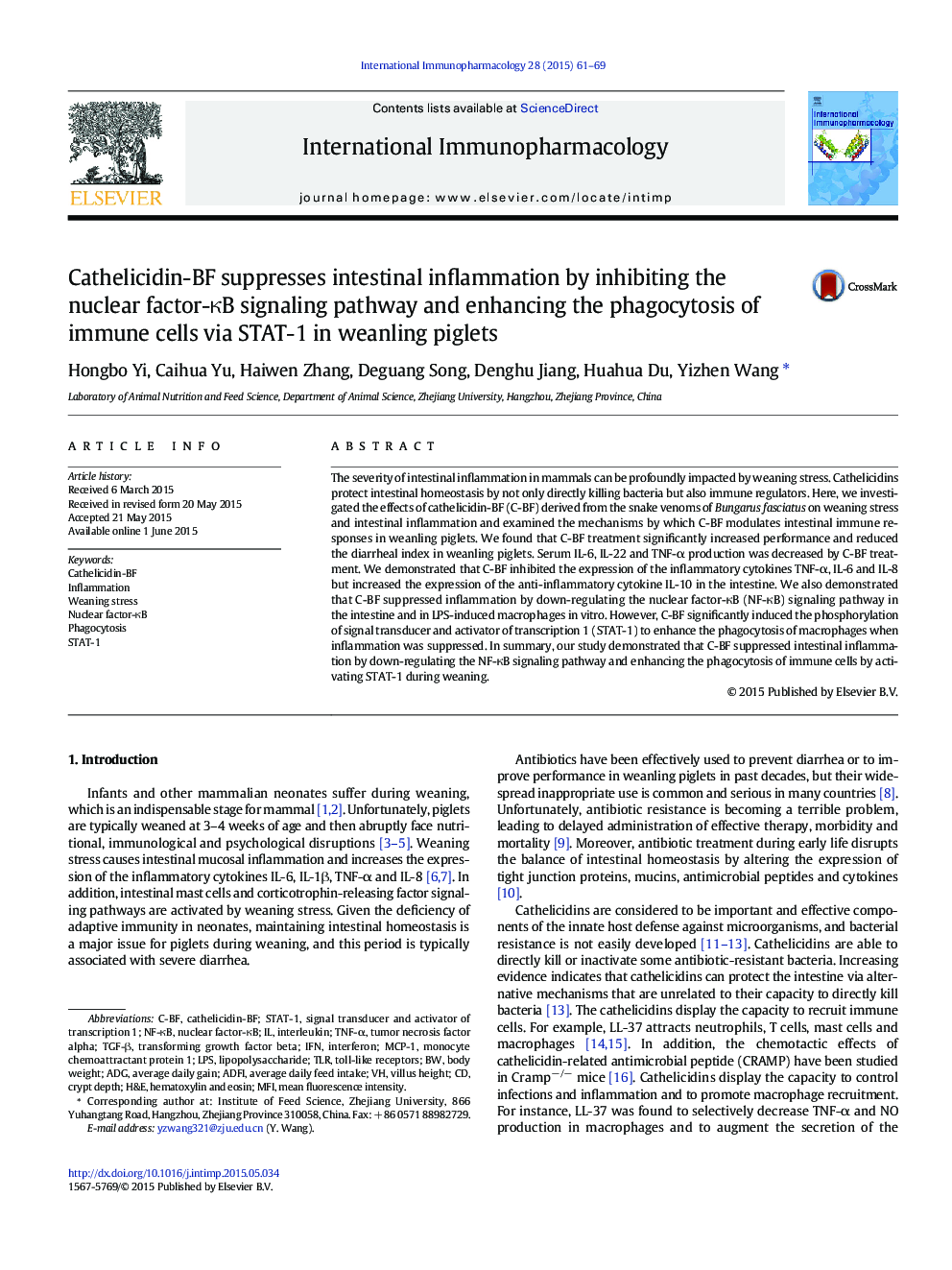| Article ID | Journal | Published Year | Pages | File Type |
|---|---|---|---|---|
| 2540428 | International Immunopharmacology | 2015 | 9 Pages |
•Cathelicidin-BF reduced weaning stress.•Cathelicidin-BF suppressed weaning-induced intestinal inflammation.•Cathelicidin-BF inhibited NF-κB signaling pathway.•Cathelicidin-BF enhanced the phagocytosis of macrophages via STAT-1 activation.
The severity of intestinal inflammation in mammals can be profoundly impacted by weaning stress. Cathelicidins protect intestinal homeostasis by not only directly killing bacteria but also immune regulators. Here, we investigated the effects of cathelicidin-BF (C-BF) derived from the snake venoms of Bungarus fasciatus on weaning stress and intestinal inflammation and examined the mechanisms by which C-BF modulates intestinal immune responses in weanling piglets. We found that C-BF treatment significantly increased performance and reduced the diarrheal index in weanling piglets. Serum IL-6, IL-22 and TNF-α production was decreased by C-BF treatment. We demonstrated that C-BF inhibited the expression of the inflammatory cytokines TNF-α, IL-6 and IL-8 but increased the expression of the anti-inflammatory cytokine IL-10 in the intestine. We also demonstrated that C-BF suppressed inflammation by down-regulating the nuclear factor-κB (NF-κB) signaling pathway in the intestine and in LPS-induced macrophages in vitro. However, C-BF significantly induced the phosphorylation of signal transducer and activator of transcription 1 (STAT-1) to enhance the phagocytosis of macrophages when inflammation was suppressed. In summary, our study demonstrated that C-BF suppressed intestinal inflammation by down-regulating the NF-κB signaling pathway and enhancing the phagocytosis of immune cells by activating STAT-1 during weaning.
